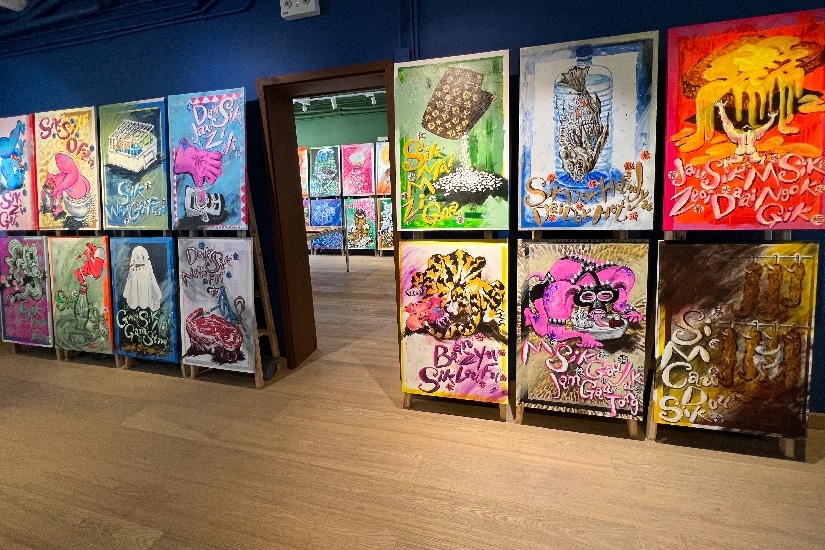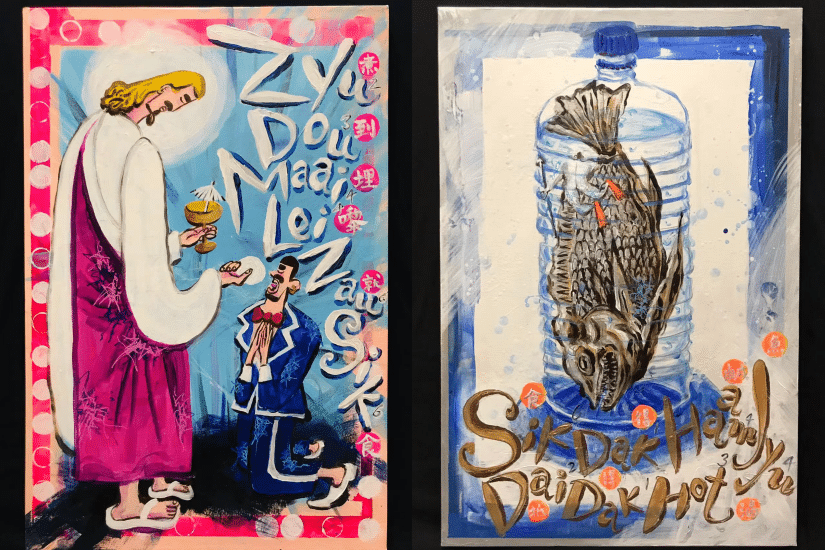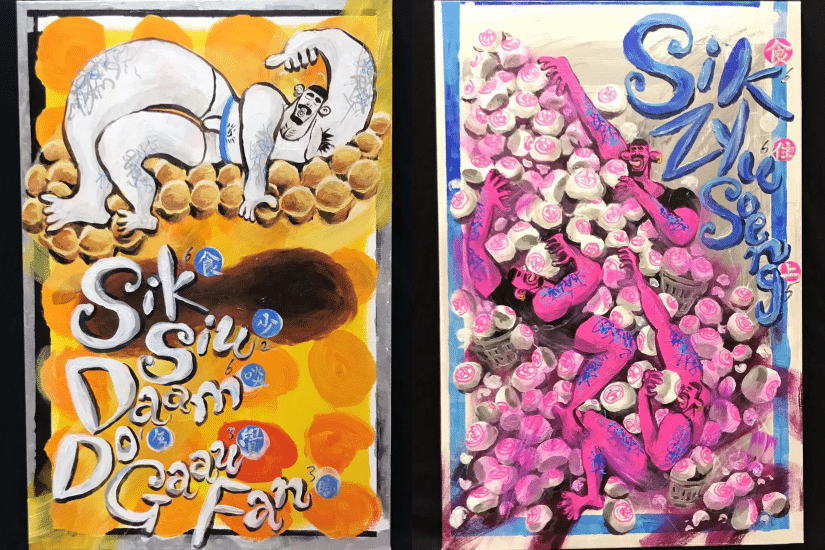There is a saying: “Food is the paramount necessity of the people,” which shows the importance we place on food. In Cantonese culture, there are many anecdotes and slang related to food, such as eating lemons, eating grains, eating frozen oranges, etc., which fully demonstrate the interesting aspects of everyday life. However, among the many food-related slang phrases that have been passed down to this day, how much do you understand their meanings?

Recently, Hong Kong’s veteran cartoonist, writer, and food culture researcher, Ouyang Yingji, brought an extremely topical solo exhibition called “Sik Zyu Soeng 食住上 —— Ouyang Yingji’s Food Comics Exhibition”. He carefully selected 36 witty idioms related to “food” and paired them with lively and humorous single-panel hand-drawn comics. He creatively annotated the slang with Hong Kong Cantonese phonetics and tones, allowing everyone to rediscover the rich cultural landscape of the Cantonese region from a linguistic and artistic perspective.

Over the years, Ouyang Yingji has been very interested in the Cantonese idioms related to daily food and lifestyle situations in Hong Kong. During the Lunar New Year in 2023, he officially launched his personal food language and cultural archive project “Sik Zi Gei 食自己”, which took him nearly two months to complete 36 pieces of work.

The artist shared with us that he compiled hundreds of slang phrases for this project. This exhibition is the first project of the plan, and he first drew the most familiar slang phrases, such as “eating without wiping the mouth,” “pretending to be a pig to eat a tiger,” “eating peanuts while sitting on a stool,” “eating rice without worries,” and so on. He deliberately added Cantonese romanization on the artworks, allowing non-Cantonese speakers to try to pronounce the words. He jokingly said that this might be the first Cantonese sentence that non-native Cantonese speakers can pronounce, and it is also one of the ways to promote Cantonese to the outside world.
Further reading:
- Relive the once-thriving taxi culture of Hong Kong! The iconic Canton Disco from the 80s makes a surprising debut at The M+ Shop
- Art Central 2023 焦點裝置項目精選!焦炭懸浮迷宮、大型織物裝置、流線型紙雕塑
- 香港藝術月 2023 :Art Basel 恢復兩層展廳、街頭藝術盛典、大師級專題特展,9 個三月必訪藝術盛事!

In addition, this exhibition has invited architect Anthony Ko to design the exhibition. In the three collection spaces of the PMQ Taste Library, wooden ladders have been transformed into frames for artworks. This echoes the exhibition theme “Food and Living” and showcases works on different themes in each space.

During the exhibition planning process, Ouyang Yingji invited non-locals living in Hong Kong to “learn” these slang terms and collaborated with musician Ding Yanting (Erikson Ting) to re-arrange these voices with different backgrounds and accents. Apart from being able to hear these people reading sentences with different accents, in the last part, the musician was inspired by Cantonese opera “Bang Wong” (referring to a singing style without a fixed melody) and “rearranged” the vocals, accompanied by a fusion of Chinese and Western music, deconstructing Hong Kong slang and presenting it in an experimental and unique way, which is quite interesting!
“Sik Zyu Soeng Food and Shelter – Ying Ji’s Food Comics Exhibition”
Date: From now until April 11th
Time: 11:00 AM to 6:00 PM (Closed on Mondays)
Location: PMQ Taste Library, Block B, 5th Floor, H504

